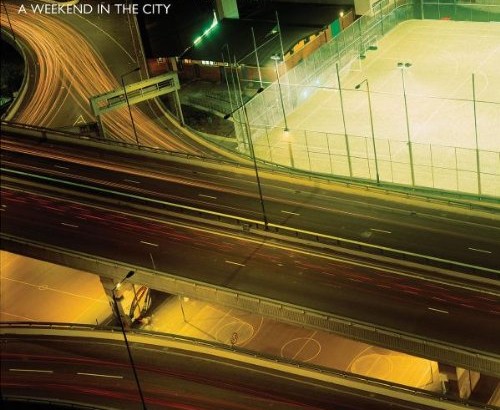Few albums capture so much of its period like Bloc Party’s A Weekend in the City, their 2007 follow up to the debut album Silent Alarm. This album marked the beginning of Bloc Party’s movement away from the guitar driven indie-rock style that had made them one of the hottest acts of the mid-2000’s and towards a more electronic rock sound that would redefine their signature.
Opening with the operatic Song For Clay (Disappear Here) which proclaims when we kiss I feel nothing and East London is a vampire. This is a more earnest album lyrically earnest, bordering on a concept album. Frontman Kele Okereke juxtaposes everyday city occurrences with major events and ideals, showing the complexity of city life and modernity itself.
Racing into Hunting For Witches, which is perhaps the band’s most political song, it discusses xenophobia in the UK, fear-mongering conservatives and the general climate of fear left behind after the London Underground bombings. When I saw Bloc Party at Falls Festival last year, these lyrics still held their ground, and felt as vital today as they did back then, in a country thousands of miles from where they were written. When the political climate feels like it’s never been more charged, and that the world is becoming more divisive and isolationist, there is a disconcerting calm in knowing this feeling is neither new nor alien. Russell Lissack merges guitar riffs reminiscent of their breakout single Helicopter with a new indie electronic sound.
Until writing this, I hadn’t actually listened to this record in full for quite a while. Putting it on I was reminded of just how much I related to it, and Okereke’s lyricism had touched me over the years. From the desire to escape and explore new places in Waiting For The 7.18 (I lost my mind when they surprised Falls patrons with this non-single performance) to the realisation that your life may not be going the way you had planned or hoped in Kruezberg, this album is so incredibly personal, yet so relatable. I find that as I get older, and each time I revisit this album, I learn something new about it and about myself as a person.
We then come to what I like to call, The Trilogy. The Trilogy of I Still Remember, Flux and Sunday is a series of songs towards the end of A Weekend in the City that feel linked, yet tell different stories. I often break them down into the concepts of afternoon, night time and the morning after, as their stories and musical tones fit. It also complements the album’s overall theme of telling stories of life in the city.
I Still Remember is often mistaken as a story of the openly gay Okereke’s youth and his experiences as a teenager. He has stated in interviews that the song actually reflects the story of two straight boys who feel an attraction to each other that is inexplicable and unspoken, commenting on subconscious homophobia and the pressures of masculinity on young men. Flux, a standout track on the album, tells the story of a relationship that is collapsing in on itself. The indie dance track made for clubs marks the most drastic move away from their old sound, and to this day is both lauded and divisive. Personally it’s my favourite Bloc Party song of all time. The rawness as Okereke cries out we need to talk as the beat crescendos back in gives me goosebumps every time I hear it.
The Trilogy then closes with Sunday, a morning after song. This beautiful song explores the feeling of waking up next to someone after a heavy night of drinking. The song implies that the couple featured have been together for a long time, but each time I hear it, it feels like a new love. There’s something so pure about this song, so hopeful in it’s cheeky lyricism of I’ll love you in the morning, when you’re still hungover. The song’s protagonist is so content in this moment to just be with the other person and just exist.
The album closes with SRXT, a track I hadn’t revisited the longest on the record. The title is a reference to the SSRI antidepressant medication Seroxat (aka Paxil), and is perhaps the darkest song on the record. In SRXT Okereke outlines the feelings of depression and suicide he felt. He has talked openly about the rise in mental health issues in young people, and the alarming increase in youth suicide as an inspiration to write the song. A powerful moment comes with the lyrics I called up Eugene, told him I was drowning, in which he describes telling his father of his own suicidal thoughts. It’s a dark motif to leave the record on, and sets the audience up for the deeply personal and raw 2009 follow up Intimacy.
I’ve been a Bloc Party fan for almost ten years now, and this album still gets me in both senses of the term. There’s something beautiful in holding a piece of art that encapsulates how you felt at 15 that still resonates with you at 25. A record you mature with, and who’s themes you grow into understanding in more complex ways. A Weekend In The City is that album for me.

